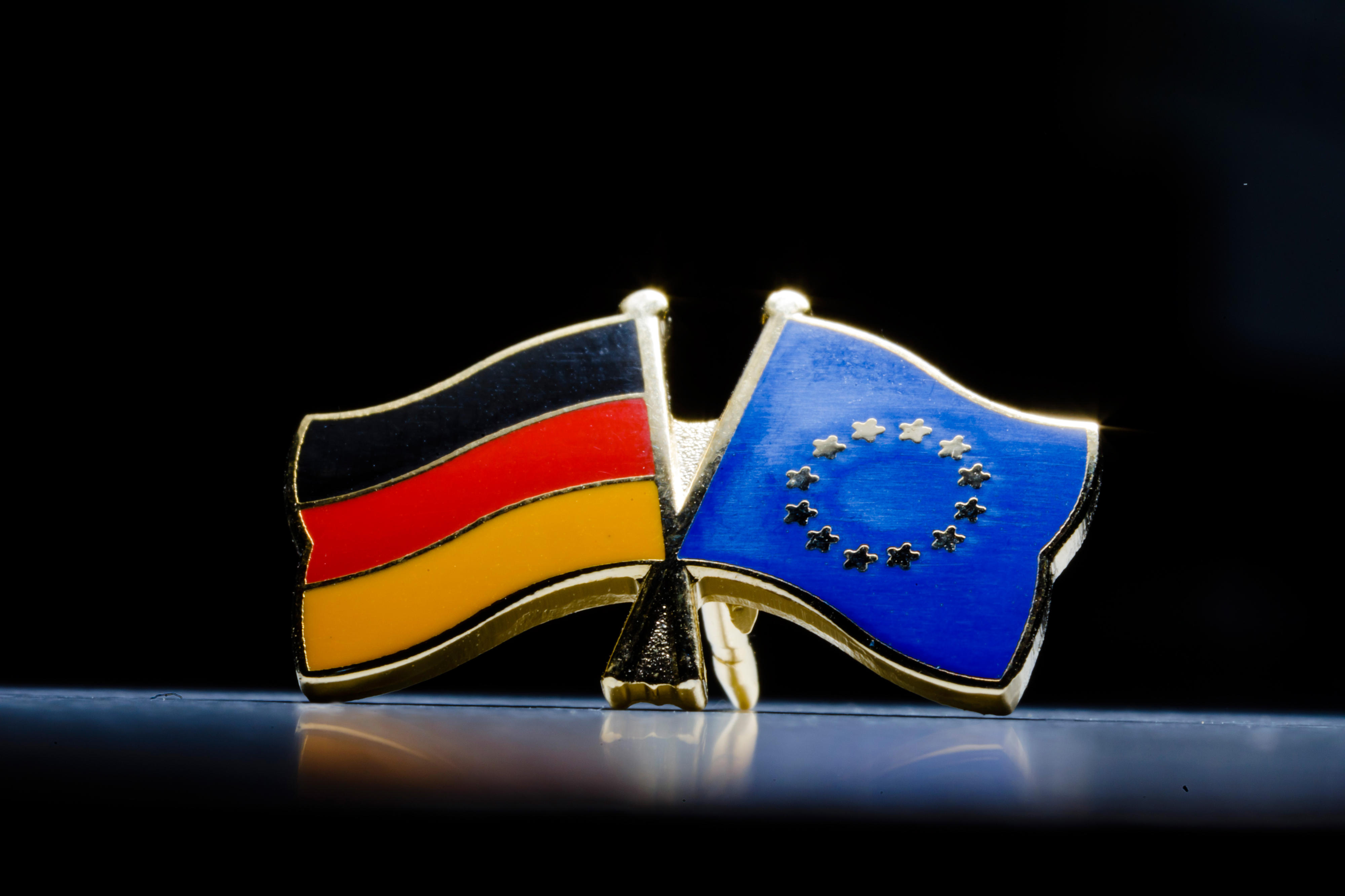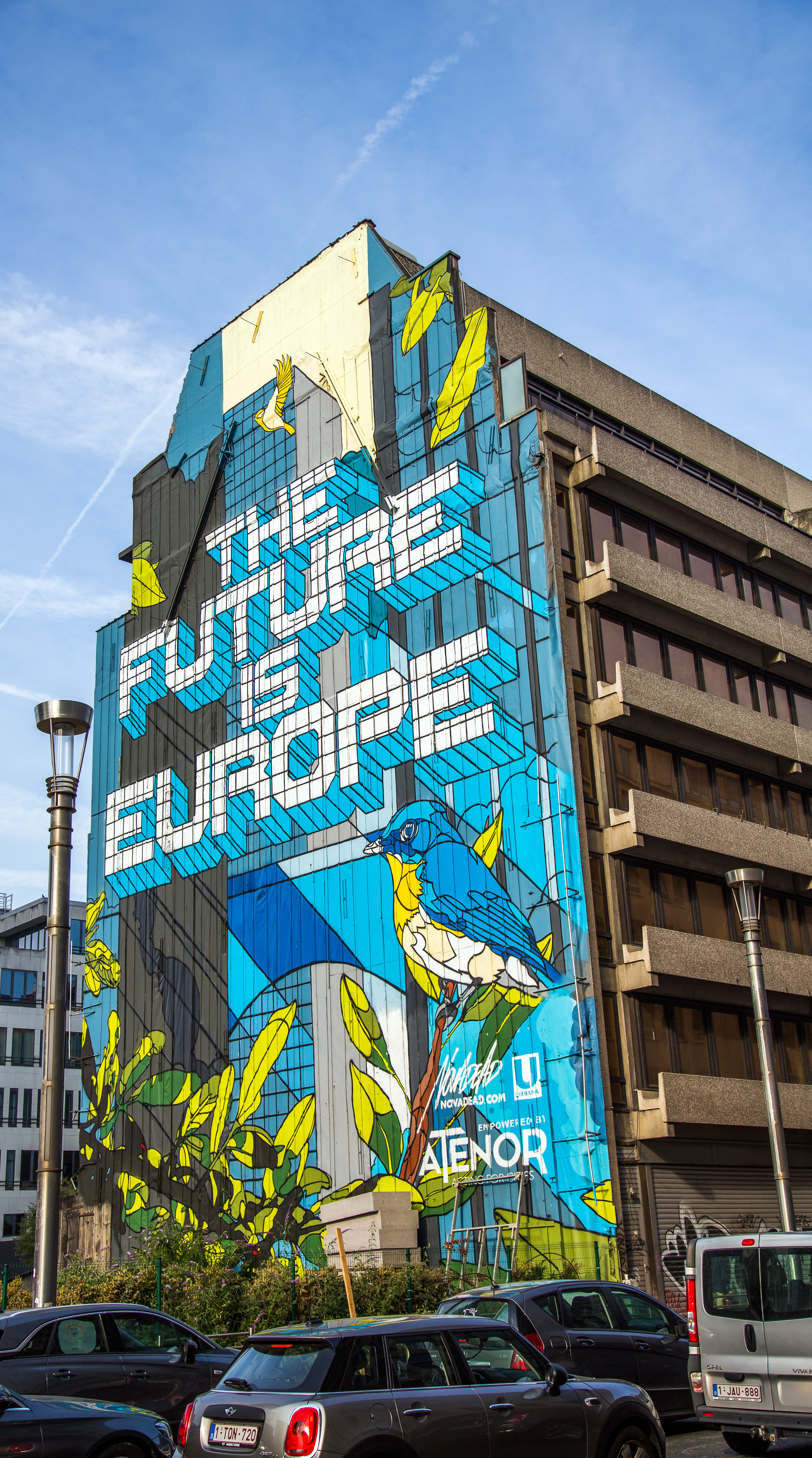Pin with the flags of Germany and the European Union
Copyright© Thomas Trutschel/photothek.net
European cooperation “Team Europe”: development policy within the framework of the European Union
Beyond its financial contributions, the EU also has varied economic, political and cultural relations with its partner countries and with regional and international organisations. This is another reason why the EU is a key player in international development policy. There is close collaboration between the European Union and its member states in this regard, with the respective national development policies and European programmes mutually complementing each other.
Comprehensive approach for foreign and development policy
Major current challenges for EU development policy include Russia’s war of aggression against Ukraine and its far-reaching impact on food and energy supply, the United States’ withdrawal from development cooperation, climate change, and global biodiversity loss. Tasks that require joint action – both within Europe and worldwide.
In order to assist their partner countries in coping with these crises, the European Union, the EU member states and the EU’s financial institutions decided in 2020 to combine their efforts. Since then, this concept of community has evolved further into a comprehensive approach for European foreign and development policy known as the “Team Europe” approach. This approach helps to highlight the EU's leading role, responsibility and solidarity on the global stage and put more of a focus on shared values and interests.
Team Europe is more than a brand name. The Team Europe Initiatives (TEIs) are a visible and tangible expression of the collaboration between the EU and its partner countries. The TEIs are an instrument for implementing the EU’s Global Gateway strategy. The EU is using this comprehensive strategy to mobilise private and public funding to boost the development of global infrastructure in collaboration with its partner countries. Funding is being provided in the areas of digital technology, climate and energy, transport, health, and education and research.
Joint Programming
The Team Europe approach is closely connected with the EU’s Joint Programming, which was established in 2006 with the aim of ensuring a more coordinated, effective approach to development cooperation and external action. Joint Programming means that the EU, its member states and sometimes other partners as well agree on a common strategy and decide about their goals, the division of labour and the implementation of measures in consultation with one another. Joint Programming also includes the joint monitoring (External link) of results.
The Federal Ministry for Economic Cooperation and Development (BMZ) participates in Joint Programming in all partner countries of German development cooperation. Whenever possible, the BMZ’s own country strategies are replaced by Joint Programming.
How is European development cooperation financed?
In order to effectively and visibly promote sustainable development worldwide, in 2021 the EU established its first-ever uniform financing instrument for development cooperation: the Neighbourhood, Development and International Cooperation Instrument, also known as NDICI – Global Europe. It is part of the EU budget and has an overall allocation of 79.5 billion euros. These funds are to be used in the period 2021-2027 to help:
- overcome poverty
- protect democracy, the rule of law and human rights
- promote sustainable development and strengthen climate action
- mitigate the causes of irregular migration and prevent forced displacement
- promote multilateralism and implement international agreements such as the 2030 Agenda and the Paris climate agreement
- deepen partnerships with countries around the world
NDICI – Global Europe combines both geographical strategies for cooperation with partner countries and regions and thematic strategies as a means of addressing cross-regional challenges and promoting sustainable development at the global level. Moreover, the instrument provides funding for conflict prevention and rapid crisis response. There is also a financial reserve for responding flexibly to unexpected developments and events.
A core element is the integrated “European Fund for Sustainable Development Plus” (EFSD+). It is aimed at mobilising and implementing additional public and private investment in sustainable development.
What role does Germany play in European development cooperation?
As the largest EU member state, Germany plays a key role in shaping the development cooperation of the European Union. In addition to that, the German government wants to make German development cooperation “more European” as a way of making the activities of the EU and its member states more efficient and more visible as a joint European contribution to sustainable development. The idea is to closely coordinate development, foreign and security policy so as to effectively prevent conflict, and support change processes in the EU’s partner countries.
The focus is on eradicating hunger and poverty, climate action, Just Transition, migration, Global Health, social standards for the global trade regime, digital technology and gender equality.
Germany works closely with the EU institutions and other EU member states for doing this. Among other things, Germany has successfully campaigned for the provision and production of vaccines in Africa as part of a Team Europe Initiative.
Mural by the artist Nova Dead in Brussels
As at: 28/08/2025

